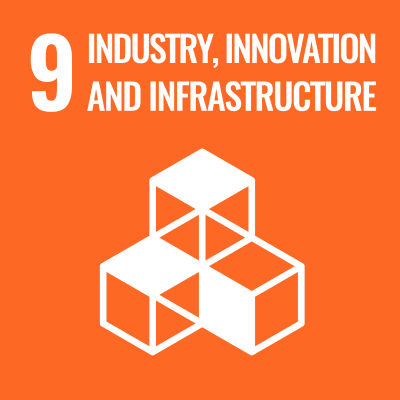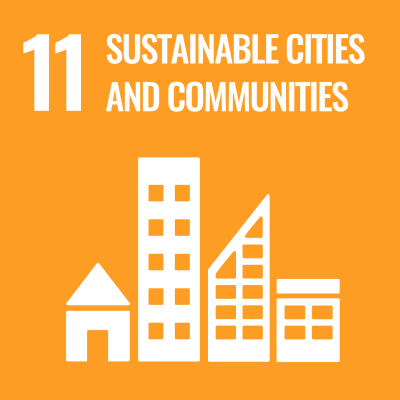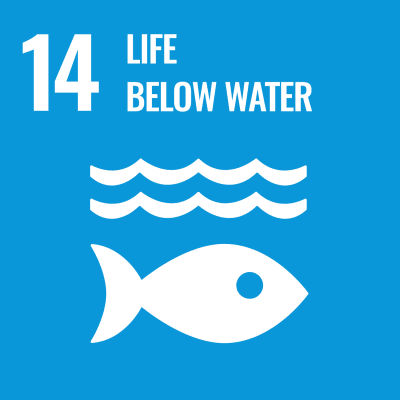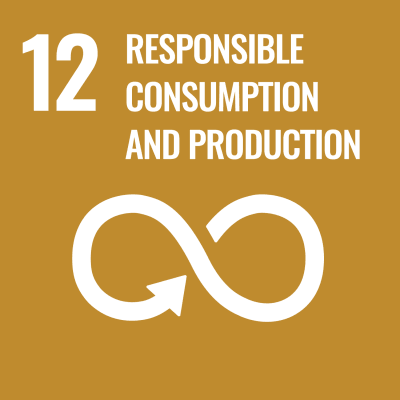-
Faculty of Science, Department of Applied Mathematics
- Professor
- Shintaro KUROKI
- Research Field
Transformation groups, Toric topology
- Keyword(s)
Group action, (Equivariant) Cohomology, Graph
- Research theme
-
- Cohomological rigidity problem
- Application of GKM theory to geometry
- Classification problem of the spaces with group actions, etc.
Outline of research activities





In the word of mathematics, the symmetric structures on spaces are described by groups.
We call such symmetric space a space with group action.
My research interest lies in geometry and topology of the spaces with torus actions.
In this decades, the area so-called toric topology has been emerged.
Roughly speaking, toric topology can construct bridges among different areas (geometry, algebra and combinatorics) by the study of the spaces with torus actions.
In the near future, I would like to continue to study toric topology more deeply and challenge to solve open problems.
- Desired cooperation
-
-
Associate professor, Department of Applied Mathematics
- Associate professor
- Hiraku ABE
- Research Field
Geometry, Topology, Transformation groups
- Keyword(s)
Algebraic varieties, group actions, cohomology rings
- Research theme
-
- Algebraic varieties with group actions
- Hessenberg varieties
- Flag varieties and toric varieties
Outline of research activities

The main theme for my research in mathematics is “spaces with symmetry”. I am particularly interested in the field in which algebra, geometry, and combinatorics (three different kinds of mathematics!) intersect all at once. For those area of mathematics, it is often happens that a single phenomenon has many ways to be viewed; it can have geometric interpretaions, representation theoretic interpretations, and combinatorial representaions. Through these experience, we can feel the richness of mathematics. In particular, it is exceptional when we can express abstract geometric/topological quantities in terms of concrete algebra and combinatorics. Recently,I am particularly interested in the geoemetry and topology of Hessenberg varieties.

- Desired cooperation
-
- None
-
Faculty of Science, Department of Applied Mathematics
- Associate professor
- Masakazu ONITSUKA
- Research Field
Qualitative theory of ordinary differential equations
- Keyword(s)
Ordinary differential equations, Qualitative theory, Stability
- Research theme
-
- On the stability of nonautonomous ordinary differential equations
Outline of research activities





The field of my research is part of the qualitative theory of ordinary differential equations. In this research, we focus on the behavior of all solutions of nonautonomous ordinary differential equations. How does the variable coefficients of ODE influence the stability of the solutions? The main purpose of this research is to answer this question. In particular, we deal with the problem on the stability in the Lyapunov sense. For example, we treat asymptotic stability, uniform asymptotic stability and exponential stability. By understanding these essence, we aim to contribute to the development of ODE.
- Desired cooperation
-
- Applications to control theory
-
Faculty of Science, Department of Applied Science
- Professor
- Takanobu KAMATAKI
- Research Field
sedimentology, natural disaster, disaster education
- Keyword(s)
tsunami deposit, flood deposit, natural disaster, disaster education
- Research theme
-
- Study on paleo-tsunami history and inundation in coastal lowland area
- Study on disaster assessment based on tsunami and flood deposits
Outline of research activities



Tsunami deposits are useful in attempted reconstructins of prehistoric tsunamis. Geological analyses of tsunami deposits can provide estimates of several parameters of tsunamis, such as recurrence intervals and inundation areas. To assess the history of paleotsunami, we investigate the tsunami deposits around the coastal lowlands on the eastern margin of the Sea of Japan. These studies provides useful information for advancing tsunami disaster risk assessment in coastal lowlands.
In addition, we are active in the practice of disaster education.- Desired cooperation
-
- tsunami and flood survey
- disaster education
-
Faculty of Science, Department of Zoology
- Professor
- Yuji TAKENOSHITA
- Research Field
Primatology, Anthropology, Zoo Sciences, Socio-Ecology, Conservation Ecology, African Studies
- Keyword(s)
Primates, Gorilla, Zoo, Biodiversity Conservation, Africa, Human Evolution
- Research theme
-
- Studies on feeding ecology and life history strategies in wild western lowland gorilla (Gorilla g. gorilla)
- Cooperative breeding among primates
- Evolution of non-reproductive aspect of primate and human sexuality
Outline of research activities




Primates (precisely non-human primates), are the animal group that shares the most similarities with humans. They show high levels of intelligence and social skills. Additionally, many primate species live in tropical and subtropical regions and are considered keystone species that play a fundamental role in maintaining tropical ecosystems. Researching the society and ecology of primates can provide us with valuable insights into the evolution and nature of humans. This knowledge can help us better understand ourselves, as well as contribute to the conservation of biodiversity and the resolution of global environmental issues. My work involves studying the society and ecology of primates and other large and medium-sized mammals, mainly through field observations. I also examine human society from a zoological perspective and its evolution. Currently, my team and I are conducting long-term field research and conservation activities to protect wild gorillas in the tropical forests of Central Africa. We also conduct educational and animal welbeing activities in zoos and perform behavior observation research on Japanese macaques in Japan.
- Desired cooperation
-
- Development of ecological and behavioral data collection equipment and systems in tropical forests using ICT technology
- Practice of local ecosystem conservation activities through collaboration between researchers and citizens ( local community members)
- Zoo-based biodiversity conservation education activities
-
Faculty of Engineering, Department of Architecture
- Professor
- Fuminori HIRAYAMA
- Research Field
Architectural Design
- Keyword(s)
user participation design, user evaluation,workshop, public cultural facilities
- Research theme
-
- User Evaluation of Public Cultural Facilities
- Analysis of user opinions and verification of effectiveness of user participation design
- Functional changes in public cultural facilities
Outline of research activities





In the design of public cultural facilities, there are an increasing number of examples of design methods that incorporate the users’ ideas at the architectural design stage in order to promote active use.
Our laboratory has collected 70 cases of participatory design from all over Japan. The following participatory design practices were implemented in our laboratory, and the effectiveness of participatory design was verified through analysis of user opinions and post-completion evaluations of these practices.
・Kudamatsu City Community Exchange Center (2013)
・Okayama Prefectural Doctor’s Hall (2015)
・Sanagouchi Village Office (2017)
・Kashiwa City Southern Neighborhood Center (2018)
- Desired cooperation
-
- Public facility planning and design
- User-participatory design practices
- User evaluation analysis of public facilities
-
Faculty of Engineering, Department of Architecture
- Associate professor
- Toshio YADA
- Research Field
Architectural Design, Urban Design
- Keyword(s)
Design Method, preservation and utilization
- Research theme
-
- The study and the practice of the architectural design
Outline of research activities


Study and practice on design methods of architecture in the context of urban space, public space, strategic urban regeneration by micro-intervention.
The main emphasis of my laboratory is to grasp architecture in the context of urban space and social situation, and use this for the basis for constructing both a new design theory and practical architectural projects.- Desired cooperation
-
- Architectural Design
- Urban Design
-
Faculty of Life Science, Department of Bioscience
- Associate professor
- Atsuhito KUBOKI
- Research Field
Synthetic organic Chemistry, Bioorganic chemistry
- Keyword(s)
Organic reaction, Enzymatic reaction, Bioactive compound
- Research theme
-
- Development of Development of new synthetic methodologies of ο-quinones
- Studies on chemo-enzymatic processes for fine chemicals
Outline of research activities



Our group is interested in developing new synthetic methodologies to enable synthesis of biologically active natural compounds and their derivatives in environmental friendly manner. As such manners, we have developed metal-free regioselective cycloaddition of highly reactive o-quinone to form 1,4-benzodioxane and a procedure for construction of benzene ring from o-quinone and terminal alkynes through cycloaddition and photo-decarboxylation. We have also reported concise synthetic route to KDO, a kind of carbohydrate, including elimination of cyclic sulfite as a key step. By collaborative research with a company, functional monomers for dental adhesive resin cements have been developed.

- Desired cooperation
-
- Development of fine chemicals by analogue synthesis
- Partial modification of lead compound
-
Faculty of Biosphere - Geosphere Science, Department of Biosphere - Geosphere Science
- Professor
- Takeharu SATO
- Research Field
Disaster prevention meteorology
- Keyword(s)
Sediment disaster, Rainfall
- Research theme
-
- Development of landslide disaster prediction technology
- Development of risk evaluation technology of landslide disaster
Outline of research activities



We have to evaluate the occurrence prediction and disaster occurrence risk of landslides from inspection data. We analyze the trend of the past of the disaster, to assess whether the “when” “where” landslide disaster occurs, we are working to hazard maps.
These results are considered useful in a safe life.
- Desired cooperation
-
- Construction consultant
- Disaster-prevention measures
-
Faculty of Education, Department of Primary Education
- Associate professor
- Miho IMOTO
- Research Field
Music Education
- Keyword(s)
Music Education, Physical Expression, Creativity
- Research theme
-
- Elucidating the Techniques of Music Teachers Using Multimodal Analysis Techniques
- Music Education in the Nursery School-Elementary School Connection
- Music and Physical Expression
Outline of research activities

Music instruction is conducted not only through words, but also through various non-verbal means of expression, such as eye contact, gestures, and facial expressions. We are collecting and studying objective data on what music teachers look at and how they use their bodies in response to what situations, using eye-gaze measurement devices, motion capture, etc. We are also collecting data on the actual status of music teachers’ nonverbal communication by comparing these data with the results of interviews with teachers. By comparing these data with the results of interviews with teachers, we aim to elucidate the actual state of nonverbal communication among music teachers.
We are also conducting research on the relationship between music and physical expression.- Desired cooperation
-
- Research on the Proficiency of Music Teachers
- Research on Nonverbal Communication in Music Instruction
-
Faculty of Education, Department of Primary Education
- Associate professor
- Yayoi OKUMURA
- Research Field
Educational psychology, Clinical psychology
- Keyword(s)
Children's social-emotional development, SEL
- Research theme
-
- Teacher's involvement to support children's social-emotional development
- Development and implementation of SEL programs
- Relation between evaluation of emotion and adaptation
Outline of research activities


I am interested in teacher involvement in supporting children’s social-emotional development. School is not only a place to develop academic skills, but also to promote children’s social-emotional development. So, what kinds of teacher involvement contribute to the development of children’s social-emotional competence? I am collecting and analyzing data on these questions.
I am also developing programs to foster communication skills, etc., with reference to psycho-educational programs that foster knowledge and skills related to the mind and social-emotional learning (SEL). These programs are meant to “prevent” problematic or maladaptive behaviors before they occur. I am also interested in how to utilize such programs in actual educational settings.- Desired cooperation
-
- Data collection and analysis of children's social-emotional competence
- Development and implementation of programs to promote children's emotional development
-
Faculty of Education, Department of Secondary Education
- Professor
- Shammi DATTA
- Research Field
Teacher Education, IB、Japan Studies (History, Cutlure and Regional Revitalization)
- Keyword(s)
Proactive Learning, Inquiry, IB, Regional Revitalization, Animism
- Research theme
-
- Global standards inquiry based teaching and learning, and IB education in Japan and India
- Regional revitalization
- Animism in Shinto and Hinduism
Outline of research activities


How can teachers motivate learners towards meaningful inquiry and research based learning? Should teachers teach, facilitate, or both? How can interactive, proactive student co-ownership of learning and assessment be realized? These are my primary inquiry questions in the field of teacher education.
My primary inquiry interests in Japan Studies and social studies education are as below: How do local policy and business models come together to bring about regional revitalization? How can we implement case studies in this area in secondary school education, and Japan Studies education?
Analysis of animism in Shinto, Hinduism.and Japanese Buddhism.- Desired cooperation
-
- Inquiry based, global standards, differentiated teaching and learning
- IB education in Japan and India
- Analyzing regional revitalization from the point of view of “successful” business models
-
Faculty of Management, Department of Management
- Professor
- Makoto UCHIDA
- Research Field
International Business Management, Video Game Development, Project Management
- Keyword(s)
Entertainment, Video Games, Global Business Management
- Research theme
-
- International Business Management in the IT Industry
- Transition of Video Game Development Tools
- Skills Required for Video Game Developers
Outline of research activities



The world is home to an estimated 11.1 million game developers, and this number continues to grow annually. The skills demanded of these professionals are constantly evolving due to the emergence of new platforms, the diversification of game genres, and the rapid advancement of technology. While some areas require highly specialized knowledge that drives the IT industry, the advent of sophisticated development tools has made it possible for even complete novices to create popular games, and those who utilize these tools can also thrive as accomplished developers. Our laboratory analyzes these shifts in the skills required of video game developers and their future prospects by investigating and analyzing global video game market trends and the progress of digital technology.
Simultaneously, by surveying the current situations and challenges faced by developers both in Japan and abroad, we delve into strategies for sustainable corporate growth in the rapidly changing game industry and the ideal approaches to human resource development within this context.
- Desired cooperation
-
- IT Business Strategies in International Corporations
- Development of Human Resources for Video Game Development
- International Marketing Information on the Digital Game Market
-
Faculty of Management, Department of Management
- Associate professor
- Ryohei TAKAHASHI
- Research Field
Rural Development, Social Innovation
- Keyword(s)
Rural management, Rural innovation, Destination Management/Marketing Organization(DMO)
- Research theme
-
- Sustainability of rural development through a destination management organisation.
- Building a rural development marketing database.
- Role of innovators in regional innovation
Outline of research activities





In response to the crisis of social, cultural, and economic sustainability in rural areas caused by declining birthrates and aging populations, the regional management movement, in which industry, academia, government, and the private sector collaborate to solve problems, has attracted attention.
In this laboratory, we support the construction of marketing databases for tourism marketing organizations that practice regional management, while analyzing the information obtained from these databases and examining effective regional management strategies.
There are two topics in this laboratory,
(1) Research on the relationships and roles among entities in effectively functioning regional management,
(2) Research on the construction of a marketing database that contributes to the formulation of regional management strategies and on evaluation indices for regional management.- Desired cooperation
-
- Developing a marketing database for strategic rural management planning
- Analysis of economic ripple effects of events, etc.
-
Faculty of Management, Department of Management
- Lecturer
- Kenta TSUKATSUNE
- Research Field
Social Statistics, Computational Social Science, Onomastics
- Keyword(s)
Name, Naming, Network, Prefecture, Regional Attractiveness
- Research theme
-
- Research on systems and influences of brand names, place names, and people's names
- Research on regional attractiveness
- Research on users of communication services and SNS
Outline of research activities

I collect various data on people’s behavior, attitudes, and psychological states, and conduct research to explore relationships among variables. I focus on social science research methods such as questionnaires and online experiments, but I also aim to conduct research in collaboration with adjacent fields such as humanities and engineering.In particular, I am interested in understanding mechanisms by which people in a position to evaluate and make choices, such as consumers and users of services, compare objects and make decisions. I am currently focusing on the following research topics. (1) Research on mechanisms by which consumers compare and select products and services bearing brand names or proper nouns such as names of places or people. (2) Research on mechanisms by which tourists, current residents, and prospective residents evaluate attractiveness of regions such as prefectures and municipalities. (3) Research on mechanisms by which users evaluate satisfaction with SNS, the Internet, and services using 5G technology.
- Desired cooperation
-
- Research on names of people and things
- Research on evaluation of regional attractiveness of prefectures and municipalities
- Social science research focusing on SNS users
-
Faculty of Management, Department of Management
- Lecturer
- Masaya YASUI
- Research Field
coaching, organizational strategy, psychology
- Keyword(s)
coaching, organizational strategy, management, psychology
- Research theme
-
- Building a winning organization
- A study on team leaders in university baseball
Outline of research activities

We are researching the process by which organizations and teams develop and improve, approaching the topic from the perspectives of coaching, strategy, and psychology. We would like to clarify how winning (success) fosters individual motivation and team strength, which in turn leads to improved organizational strength, and focus on developing human resources who can contribute to society. In recent years, there has been a growing trend to use sports in corporate training as an opportunity to learn about organizational management and coaching. This is based on the idea that the processes by which sports teams and companies develop as organizations are similar, and is attracting attention as a method for learning about “organizational management.” The fields of management and coaching methods are also changing due to the diversification of work styles and the spread of social media. We are also conducting research with a view to researching how to create organizations that can effectively develop human resources.
- Desired cooperation
-
- Marketing for student baseball operations
- Research on human resource development and leadership
-
Faculty of Management, Department of Management
- Assistant professor
- Shanhui ZHANG
- Research Field
Marketing, Service Marketing, Tourism Marketing
- Keyword(s)
Tourism Experience, Context Management, Interaction, Hospitalit
- Research theme
-
- Tourism strategy for Chinese inbound
- A Study of Strategies Utilizing Hospitality in the Hotel Industry
- Research on Contextual management ability of Value Co-creation Marketing
Outline of research activities
I am researching on Value Co-creation Marketing, targeting tourism industry and it was found by providing service of society. The research is related to the SDGs “Goal 17 achieving the goals of parteners. Goal 17-17 promotes the public, public-private and civil society partnerships effectively. It based on the experiences of various partnerships.”
It is important that not only contains hospitality spirit of traditional Japanese, but also to estabilish a system of practice. Therefore, I am going to devote to format the partnership between all participants undering case study. Providing conceptualization and theorization of “realiation of happiness “system to clients (e,g,tourists).- Desired cooperation
-
- Corporate system that supports co-creation
- Cooperation with regional revitalization through tourism
-
Institute for the Advancement of Higher Education , Center for Fundamental Education
- Professor
- Ryo HORIKOSHI
- Research Field
Chemistry Education
- Keyword(s)
Molecular Models, Crystal Structure Models, LEGO Brick, Pappercraft
- Research theme
-
- Development of chemistry teaching materials
- Off the Chem
Outline of research activities

Our laboratory has developed molecular and crystal structure models made from inexpensive and readily available materials, including cardboard, electronic components, and LEGO blocks.

- Desired cooperation
-
- Development of chemistry teaching materials
-
Institute for the Advancement of Higher Education , Center for Fundamental Education
- Associate professor
- Miho HAYASHI
- Research Field
Modern Japanese history, environmental education, archival studies
- Keyword(s)
Pollution museum, collaboration, ESD, public history, modern family
- Research theme
-
- Inheriting a difficult past
- Regeneration of polluted areas
- Pollution museum network
Outline of research activities




The difficult past was a catastrophic event that led to “mass death,” and the damage was felt not only by the dead but also by the survivors. This applies to wars, pollution damage, isolation policies for Hansen’s disease, pollution damage, etc. Furthermore, because such damage involves a complex relationship between perpetrators and victims, the “interpretation = meaning” of the event is likely to be divided depending on one’s position, making it difficult to pass on experiences. Based on the concepts of collaboration and ESD, I create spaces for dialogue, practice public history, and deepen my research on the inheritance of difficult past experiences.
- Desired cooperation
-
- Partnership for ESD and SDGs
- Passing down pollution experiences and tourism
-
Institute for the Advancement of Higher Education , Center for Fundamental Education
- Lecturer
- Kazuki NOMAKAWAUCHI
- Research Field
Leadership Education, Accompanied Independence Support
- Keyword(s)
Leadership, Followership, Student Support, Goal Achievement
- Research theme
-
- Leadership education with followership education
- Leadership with followers in mind
- Support for self-reliance through accompaniment, etc.
Outline of research activities



In the future society, collaboration between leaders and followers is important.
Therefore, it is important that leaders also learn about followers and learn about followership.
The human resources that companies look for in new hires will include an element of followership.
Mastery of leadership requires that you make your own changes in your own behavior.
It is necessary to look back at one’s own behavior, notice unconscious comments and actions, and change oneself.
We are currently conducting research on building relationships with others, developing oneself, and becoming self-reliant through leadership education.- Desired cooperation
-
- Career Support
- Career education
- Research on personal growth, etc.



